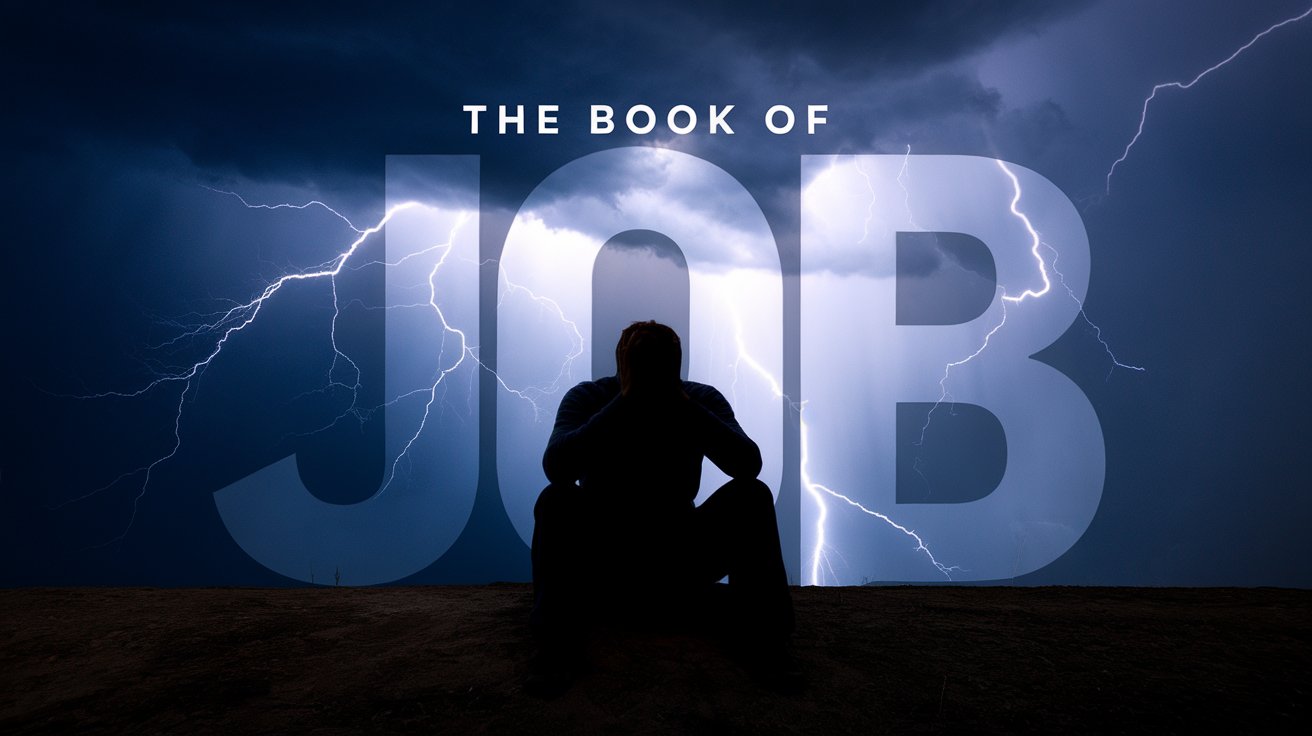When Friends Become Theologians (And Miss the Point)
What’s Job 4 about?
Eliphaz delivers the first “comfort” speech to his suffering friend Job, complete with a spooky spiritual vision and the classic line that suffering always comes from sin. It’s a masterclass in how good intentions and bad theology can wound deeper than any physical pain.
The Full Context
Job 4 marks the beginning of what scholars call the “dialogue section” of Job – three rounds of speeches between Job and his three friends. Eliphaz the Temanite goes first, and his response reveals everything about ancient Near Eastern wisdom traditions and how they could both illuminate and blind people to God’s ways. Written sometime between 600-400 BCE, this book grapples with the most fundamental question humans face: why do innocent people suffer?
The literary structure here is brilliant. After Job’s initial lament in Job 3, we expect comfort from his friends who came to “sympathize with him and comfort him” (Job 2:11). Instead, we get theology lessons. Eliphaz represents the older, more traditional wisdom approach – he’s likely the eldest of the three friends and speaks with the authority of someone who’s seen it all. His speech in Job 4 sets the tone for everything that follows: these friends genuinely believe they’re helping, but they’re about to become exhibit A in how not to counsel someone who’s suffering.
What the Ancient Words Tell Us
The Hebrew structure of Eliphaz’s opening is fascinating. He begins with ’im-nissah davar – literally “if we attempt a word” – showing he knows he’s treading on sensitive ground. But then notice how quickly he shifts from tentative to absolutely certain. By Job 4:8, he’s making universal declarations: “those who plow iniquity and sow trouble reap the same.”
Grammar Geeks
The word resheet in verse 12 (translated “whisper” or “whisper of a word”) is the same root used in Genesis 1:1 for “beginning.” Eliphaz is claiming his vision gave him access to primordial truth – the fundamental principles of how God operates. Talk about confidence!
The poetic structure reveals Eliphaz’s rhetorical strategy. He opens with apparent sympathy (Job 4:2-6), then pivots to gentle accusation (Job 4:7-11), and climaxes with his supernatural revelation (Job 4:12-21). It’s a carefully constructed argument designed to overwhelm Job with both logic and spiritual authority.
What Would the Original Audience Have Heard?
Ancient readers would have immediately recognized Eliphaz as representing mainstream wisdom theology. His argument in Job 4:8 – “those who plow iniquity and sow trouble reap the same” – wasn’t controversial; it was conventional wisdom found throughout Proverbs and other wisdom literature.
The vision sequence (Job 4:12-16) would have been particularly powerful to ancient audiences. Spirit encounters, hair-raising experiences, and divine messages delivered in the night were recognized ways God communicated. Eliphaz isn’t making this up – he’s describing a genuine spiritual experience that fits the cultural framework perfectly.
Did You Know?
Teman, Eliphaz’s hometown, was famous throughout the ancient Near East for its wisdom tradition. When Jeremiah wanted to mock failed wisdom, he asked, “Has counsel perished from the wise? Has their wisdom vanished?” about Teman specifically (Jeremiah 49:7). Eliphaz comes with serious credentials.
But here’s what’s brilliant about the author’s technique: everything Eliphaz says sounds right. His theology isn’t heretical – it’s just incomplete. Ancient readers familiar with wisdom literature would have nodded along with most of his speech, making Job’s eventual vindication all the more shocking.
Wrestling with the Text
The most unsettling part of Job 4 isn’t that Eliphaz is completely wrong – it’s that he’s partially right. The principle of sowing and reaping is a genuine biblical truth. Wicked people do often face consequences. God does sometimes use suffering to discipline and refine.
So why does God later rebuke Eliphaz so harshly in Job 42:7? Because Eliphaz commits the fatal error of making a universal principle out of a general truth. His vision told him that no mortal can be more righteous than God (Job 4:17) – which is absolutely correct – but he uses this truth to justify a false conclusion about Job’s specific situation.
Wait, That’s Strange…
Notice that Eliphaz’s vision comes at night, in a dream-like state, and the messenger is described as having an unrecognizable form (Job 4:15-16). Later biblical texts warn about testing spirits and being wary of night visions that contradict revealed truth. Was Eliphaz’s vision really from God?
The Hebrew word yesarek in Job 4:4 means “you have strengthened” – Eliphaz acknowledges Job’s past ministry to others. This makes his subsequent accusations even more painful. He’s essentially saying, “You were great at helping others, but now that you’re suffering, it proves you were a hypocrite all along.”
How This Changes Everything
Job 4 reveals something profound about human nature: our desperate need to explain suffering. Eliphaz can’t simply sit with mystery. He must have answers, even if those answers wound his friend deeper than boils ever could.
This chapter also shows us the danger of spiritual experiences without wisdom. Eliphaz had a genuine encounter with the divine (Job 4:12-16), but he interpreted it through his own theological grid rather than allowing it to expand his understanding of how God works.
“The most dangerous counselors are those who are partially right but completely certain.”
Perhaps most importantly, Job 4 prepares us for the entire book’s central message: God’s ways are higher than our ways, and sometimes the most faithful response to mystery is silence rather than explanation. Eliphaz’s confident theology will crumble before God’s whirlwind speech, but Job’s honest wrestling will be vindicated.
The irony is devastating: in trying to defend God’s justice, Eliphaz actually slanders it. In trying to comfort Job, he compounds his agony. In trying to demonstrate wisdom, he reveals his own limitations.
Key Takeaway
True friendship sometimes means sitting in silence with someone’s pain rather than rushing to explain it away with theology, no matter how sound that theology might generally be.
Further Reading
Internal Links:
External Scholarly Resources:


